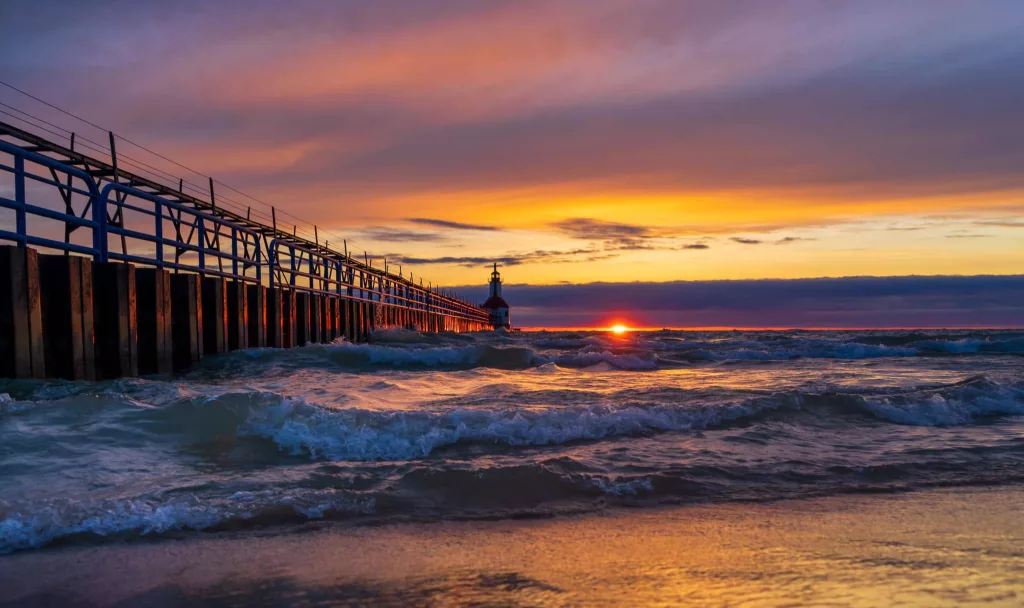While Great Lakes water levels are below last year’s record levels, the traditional seasonal rise is expected to continue before hitting their expected peak levels this summer. That’s the latest forecast released today by the U.S. Army Corps of Engineers at the Detroit District.
Corps officials remind us that during the spring, water levels typically begin a seasonal rise due to increased precipitation and runoff. Drier conditions so far this spring have limited the seasonal rises on some lakes, however, there are still a few months left in the typical seasonal rise period.
Detroit District Great Lakes Hydraulics and Hydrology Office Chief John Allis says, “Dry conditions have continued for most of the Great Lakes region, with the exception of the Lake Superior basin, which experienced above average precipitation in April.” He adds, “These drier conditions have resulted in lake levels that are much lower than the record highs of recent years. However, some lakes are still above average and coastal flooding and erosion are still possible, especially during periods of active weather and increased wave action.”
The Great Lakes basin is in its sixth consecutive month of below average precipitation. April monthly mean levels ranged 14- to 17-inches below last year’s record high levels on Lakes Michigan, Huron, St. Clair and Erie. Lake Superior was six inches below last year’s level, while Lake Ontario was 28-inches below last year’s April level.
From March to April, monthly mean water levels rose by two inches on Lakes Superior and Erie, while Lake Ontario rose five inches. Lakes Michigan, Huron and St. Clair matched March’s monthly mean levels in April.
The U.S. Army Corps of Engineers’ most recent six-month forecast, covering months May through October, indicate Great Lakes water levels will remain below record high levels, but above average on all lakes, except Lake Ontario. Lake Ontario’s forecast is below average levels over the next six months. You can find more at this link: https://www.lre.usace.army.mil/Missions/Great-Lakes-Information/.
Citizens or businesses in the Great Lakes region considering construction projects to alleviate erosion or flooding may require a Corps of Engineer’s permit as they could impact rivers, streams, wetlands and other aquatic resources.
To find more information about the permit process, visit your respective area, below:
- Michigan and Northeast Indiana: https://www.lre.usace.army.mil/Missions/Regulatory-Program-and-Permits/
- Illinois and Northwest Indiana: https://www.lrc.usace.army.mil/Missions/Regulatory/
- Northern Ohio, Pennsylvania and New York: https://www.lrb.usace.army.mil/Missions/Regulatory.aspx
The stunning photo of the St. Joseph North Pier Lighthouse on Lake Michigan accompanying this story on Moody on the Market is courtesy of award-winning Professional Photographer Molly Shuler Pate of Berrien Springs, as captured a week ago on May 4, 2021.






